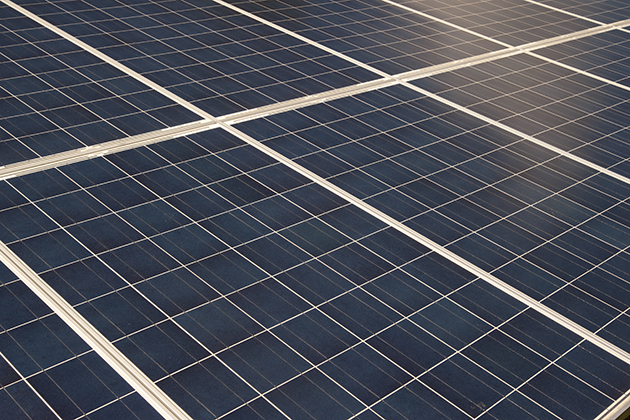
An initiative to create an independent microgrid energy system at UConn’s Depot Campus in Storrs is getting underway, setting the stage for the innovative project to be operational by fall 2014, if all remains on schedule.
The UConn Board of Trustees recently approved a budget to kick off the project, the result of an innovative partnership between the state, federal government, UConn, and industry partners.
The $2.1 million project, which includes up to $725,000 in contingency and project oversight costs that could be funded by UConn if needed, will allow the University to provide reliable, uninterrupted power to a cluster of Depot Campus buildings during prolonged electric grid power outages.
That will allow UConn to provide critical services such as warming spaces for the public with kitchens, bathrooms, outlets for recharging electronic devices, and nearby charging stations for electric vehicles. The microgrid will also provide power for staging areas for emergency and storm recovery teams, and emergency command and response centers for police, fire, and other public safety professionals.
The microgrid will be supported by an existing 400kW fuel cell and a demonstration-scale 6.6 kW photovoltaic solar panel array located at the Depot Campus adjacent to the Center for Clean Energy Engineering.
The microgrid is one of nine pilot projects receiving state funding from $18 million made available during the first phase of a three-phase program overseen by the state Department of Energy & Environmental Protection.
“This is an excellent investment for a living laboratory to study advanced systems integration and energy resilience,” UConn Provost Mun Choi told trustees when they reviewed the project and approved its budget at their December meeting.
Although the fuel cell at the Depot Campus provides most of the power and some of the heating and cooling there, it is still connected to the electric utility grid. So when an outage occurs, it cannot go into “island” mode to provide full power independently.
With an independent microgrid, however, energy from the fuel cell will be used to allow heat and power to remain operational at significant locations on campus – even during an extended outage.
“By having a microgrid, it will let us operate critical components within the Depot Campus using the fuel cell,” Choi said. “This presents many opportunities, not only to provide a safe and secure working environment but also as a laboratory for future clean energy innovation.”
Critical facilities at the Depot Campus that will be supported by the microgrid include the Kennedy Building, the Center for Clean Energy Engineering (C2E2), electric vehicle (EV) charging stations, and staging areas set aside for temporary emergency operations and storm restoration efforts.
The Kennedy Building supports the UConn’s Fire Marshal’s office, emergency response rooms, and emergency communications. The Center for Clean Energy Engineering will provide a conference room for secondary command and control support services. Area emergency teams and first responders will have access to designated staging areas that will have power and lighting provided by the microgrid.
The microgrid will also support the Cottages of Wytrol Place, which include programs such as the Community School for the Arts and others that are well-used by the public. In the event of an emergency, the Cottages at the Depot Campus (including Hebron, Tolland, Vernon, Willington, and Windham facilities) will provide specialized services to the public. The Cottages will function as warming centers, providing access to a kitchen, restrooms, and charging stations for electronic devices.
UConn will develop its microgrid in conjunction with the state DEEP; U.S. Department of Energy’s National Renewable Energy Laboratory; ClearEdge Power (formerly UTC Power), the manufacturer of the fuel cell in South Windsor; A/Z Corp. of North Stonington; and Schneider Electric.
Rich Miller, principal investigator for the project and UConn’s director of environmental policy, notes that over the past several years, Connecticut has experienced two 100-year storms, one 50-year storm, and a record-setting blizzard, each of which has resulted in extended grid power outages.
“This will be a state-of-the-art, clean energy microgrid that will not only benefit our neighbors but also help the University provide leadership and technical assistance to communities, schools, institutions, and businesses, as they adapt to and prepare for the effects of climate change, like rising sea levels and more frequent and severe storms,” he said.



